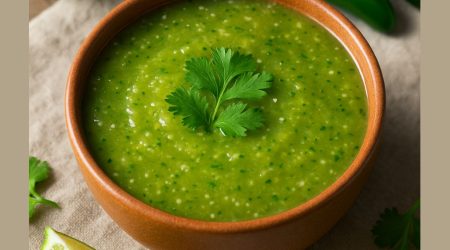19
May
Burger king double cheeseburger nutrition facts
What is the Burger King Double Cheeseburger?
The Burger King Double Cheeseburger is a fast-food favorite stacked with flavor and indulgence. Made with two flame-grilled beef patties, two slices of American cheese, pickles, ketchup, and mustard sandwiched between a toasted bun it’s no wonder it’s a go-to choice for meat lovers. But behind that cheesy goodness lies a wealth of nutrition facts that many skip over. Let’s uncover what’s really inside.
Core Ingredients Breakdown
Here’s what goes into a typical Burger King Double Cheeseburger:
-
Beef Patties (2) – Flame-grilled, seasoned ground beef
-
American Cheese (2 slices) – Rich, processed cheese
-
Pickles – Crunchy and acidic for flavor contrast
-
Ketchup & Mustard – Classic condiments, high in sugar/sodium
-
Bun – White bread, lightly toasted
Each ingredient contributes to the overall calorie count, fat content, and nutritional profile. It's important to know not just what’s in your food, but how it affects your body.
 Burger King Double Cheeseburger Nutritional Overview
Burger King Double Cheeseburger Nutritional Overview
Let’s take a deep dive into the exact numbers. Nutritional values are based on standard serving sizes and may vary slightly by location.
Calories
A Burger King Double Cheeseburger contains approximately 400–430 calories. This makes it a mid-tier option among fast-food burgers, though it's still significant if you're watching your daily intake.
Total Fat
-
21 grams of total fat
-
9 grams of saturated fat
-
1 gram of trans fat
-
That’s about 32% of your recommended daily fat intake in just one burger.
Carbohydrates
-
27 grams total
-
Simple carbs from the bun and condiments
-
Includes 7 grams of sugar
-
For those on low-carb or diabetic-friendly diets, this is a key consideration.
Protein
-
Around 25 grams of protein, primarily from the beef patties and cheese.
This makes the burger a solid source of protein, especially for those focused on muscle maintenance or satiety.
Vitamins and Minerals Present
Surprisingly, this burger does offer some nutrients:
-
Iron (15% DV) – From red meat
-
Calcium (20% DV) – Thanks to the cheese
-
Vitamin A and C – Minimal, but present through condiments
Still, it falls short of covering your daily micronutrient needs.
How It Compares to Other BK Burgers
| Burger | Calories | Protein (g) | Total Fat (g) |
|---|---|---|---|
| Double Cheeseburger | 430 | 25 | 21 |
| Whopper | 657 | 28 | 40 |
| Single Cheeseburger | 283 | 16 | 14 |
| Bacon King | 1040 | 57 | 69 |
Compared to the Whopper or Bacon King, the Double Cheeseburger sits in the moderate range for calories and fat, making it a slightly more manageable option.
Portion Sizes and Serving Suggestions
The Double Cheeseburger typically comes in a single portion size. However, pairing it with fries and a soda can balloon your meal to over 1,000 calories. Consider these alternatives:
-
Swap soda for water or diet soda
-
Choose a side salad over fries
-
Avoid “up-sizing” your meal
Health Considerations: The Good, The Bad & The Greasy
The Good
-
High in protein
-
Decent iron and calcium content
The Bad
-
High in saturated fat and sodium
-
Contains processed ingredients and preservatives
The Greasy
-
Trans fats still present in trace amounts
-
Grease-heavy preparation impacts heart health over time
Moderation is key to balancing enjoyment and health.
Is It Suitable for a Balanced Diet?
Yes, if consumed occasionally and balanced with high-fiber, low-fat foods throughout the day. Consider this:
-
Pair with fruits or vegetables during other meals
-
Keep total daily fat intake in check
-
Monitor sodium if you have hypertension
Keto, Low-Carb, and Other Diets
The Double Cheeseburger isn't ideal for strict keto or low-carb diets, but it can be customized:
-
Keto Hack: Ask for no bun, extra lettuce
-
Low-Fat Diet: Opt for grilled chicken instead
-
Low-Sodium Diet: Request sauces on the side
Customization Options and Impact on Nutrition
Want to change things up? Here's how customizations impact nutrition:
| Customization | Effect on Calories | Effect on Nutrients |
|---|---|---|
| No Cheese | -100 Cal | Less calcium/fat |
| No Bun (lettuce wrap) | -120 Cal | Lower carbs |
| Add Bacon | +70 Cal | More fat/protein |
| Add Veggies | +10 Cal | More fiber, vitamins |
How Often Should You Eat One? Expert Advice
Nutritionists recommend fast food be limited to once a week or less. Regular consumption increases risks of:
-
Weight gain
-
Heart disease
-
High blood pressure
Aim to balance it with home-cooked meals rich in whole foods.
Tips for Making It Healthier
Here are some expert-backed strategies:
-
Remove one patty or slice of cheese
-
Use mustard only to cut sugar
-
Eat slowly to improve satiety
-
Avoid combo meals
These small tweaks can reduce overall calorie intake without sacrificing flavor.
FAQs
How many calories are in a Burger King Double Cheeseburger?
Roughly 400–430 calories, depending on location and preparation.
Is it safe to eat a Double Cheeseburger every day?
No. Due to its high saturated fat and sodium levels, it’s best as an occasional treat.
Can you make a Double Cheeseburger healthier at BK?
Yes! Ask for no bun, sauces on the side, or extra lettuce and tomato.
Does Burger King offer healthier alternatives?
Yes. Look into the Grilled Chicken Sandwich or Whopper Jr. without mayo.
What allergens are in the Double Cheeseburger?
Contains milk, wheat, soy, and beef. Always check with your local BK for allergen updates.
How does it fit into a 2000-calorie diet?
It takes up about 20–22% of your daily intake, so plan the rest of your meals accordingly.
Conclusion
The Burger King Double Cheeseburger is a tasty, protein-rich option for a fast-food craving, but it’s not without nutritional pitfalls. By understanding what’s in it and how it affects your health, you can make smarter choices. Moderation and customization are your best allies when navigating the BK menu.




